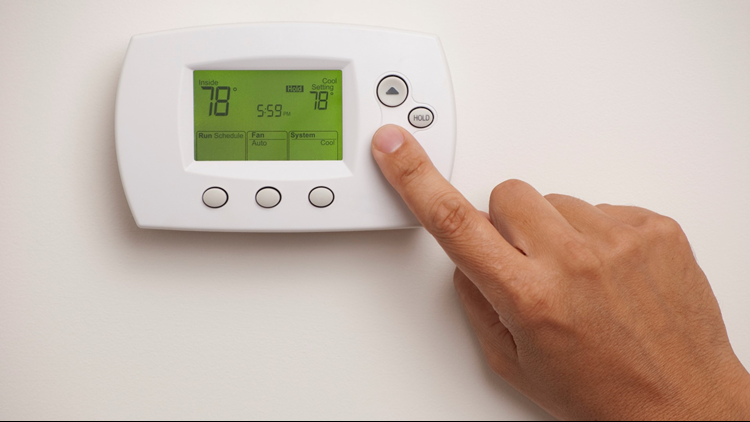QUESTION:
Is it cost effective to turn your heat completely off when you go to work? Is it better than leaving it on steadily?
ANSWER:
Turning your heat on and off is not cost effective, since your system will have to work extra hard for extra long to get the temperature back up.
SOURCES:
Mason Harshbarger- Air Masters senior service technician
Tim Shepherd- Spartan Brentwood Supervisor
PROCESS:
Our verify team works to get you facts to the questionable things you see online.
A viewer asked us to verify whether turning your heat on and off is more cost effective than leaving it running steady.
Our researchers asked AC and Heating experts.
They agree you should not turn your system off completely—then it'll have to work extra hard to reheat the house and it'll end up costing you.
"Everything in the house cools off, your furniture, your floors, your walls," Mason Harshbarger, senior service technician at Air Masters in Arkansas, said. Then when you come back home it has to heat all that back up in order to maintain a comfortable temperature."
That doesn't mean you can't bump the stat down a couple degrees when you leave.
Both the U.S. Department of Energy and Pepco agree, setting your house just 7 to 10 degrees cooler for an 8 hour period slashes your heating bill by 10 percent.
So what's the best temperature to set the thermostat at while you're at work? A crisp, 55 will do the trick.
Fifty-five degrees Fahrenheit is pretty much the coldest your thermostat will go, and it also is the most cost-effective for when you're not home.
"You don't want to get below 55 degrees in terms of keeping your pipes from freezing," Tim Shepherd, supervisor at Spartan in Brentwood told Verify last year. "To keep it fairly comfortable and economical you could leave it at 62."
If you think 55 is too risky for your pipes--think again. Shepherd said he's seen pipes freeze with the house set to 75 or 80.
"The pipes that can freeze even when the house is warm but freezing outside are usually in overhangs, or in outside walls not properly insulated," Shepherd said.
So we verified, turning your heat on and off is not cost effective in the winter, but turning it down a notch can save you major bucks.



